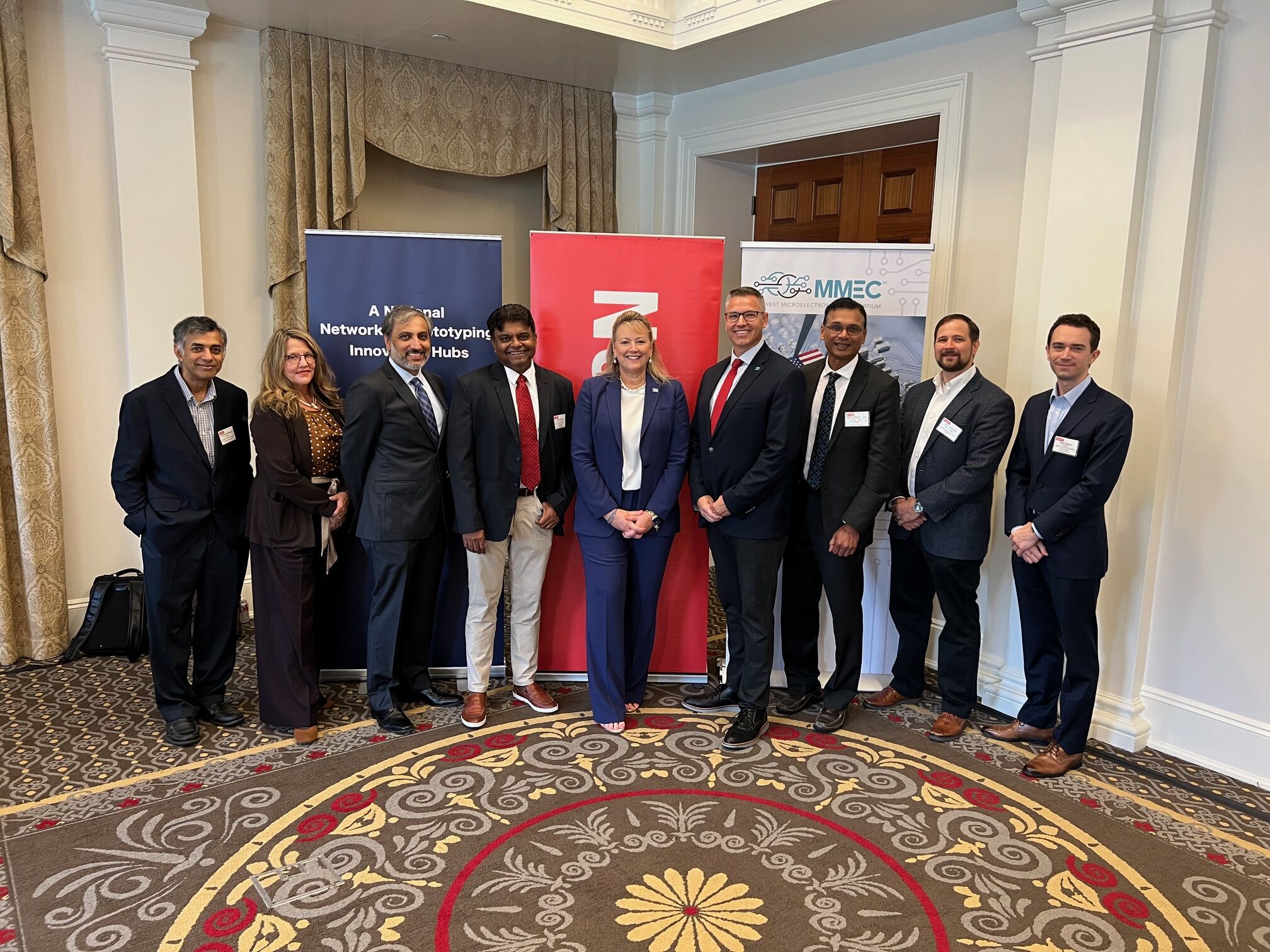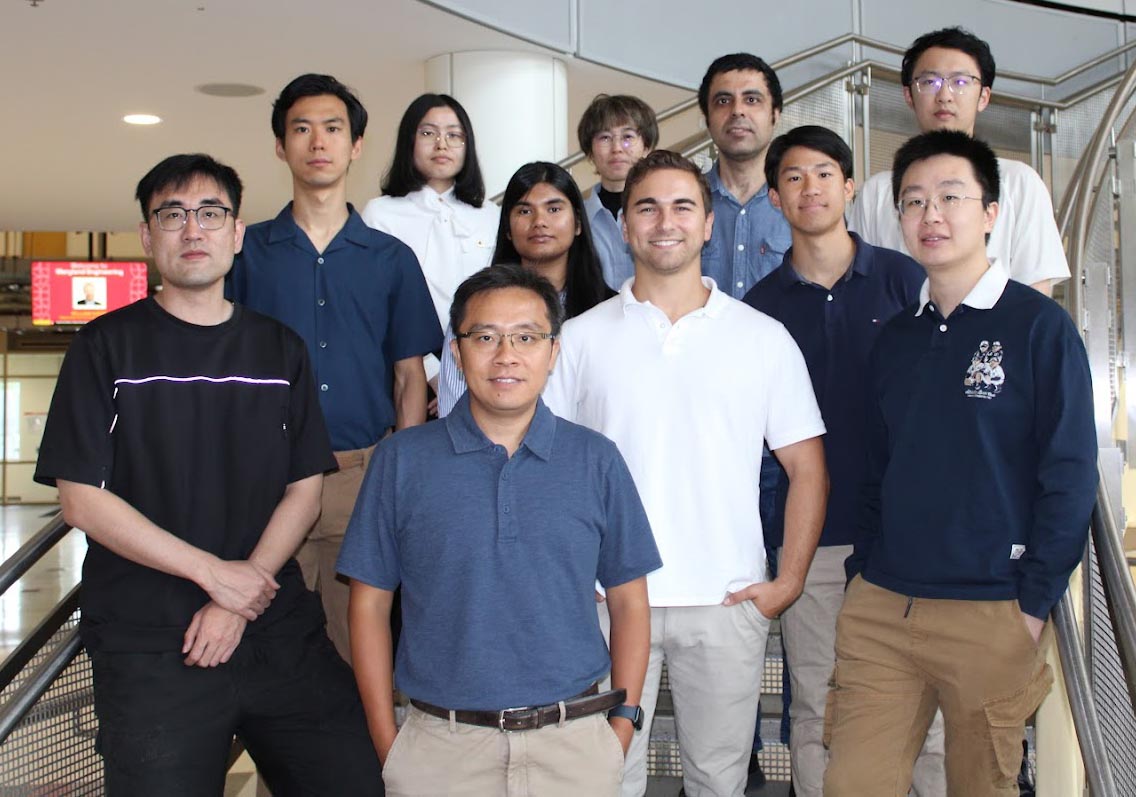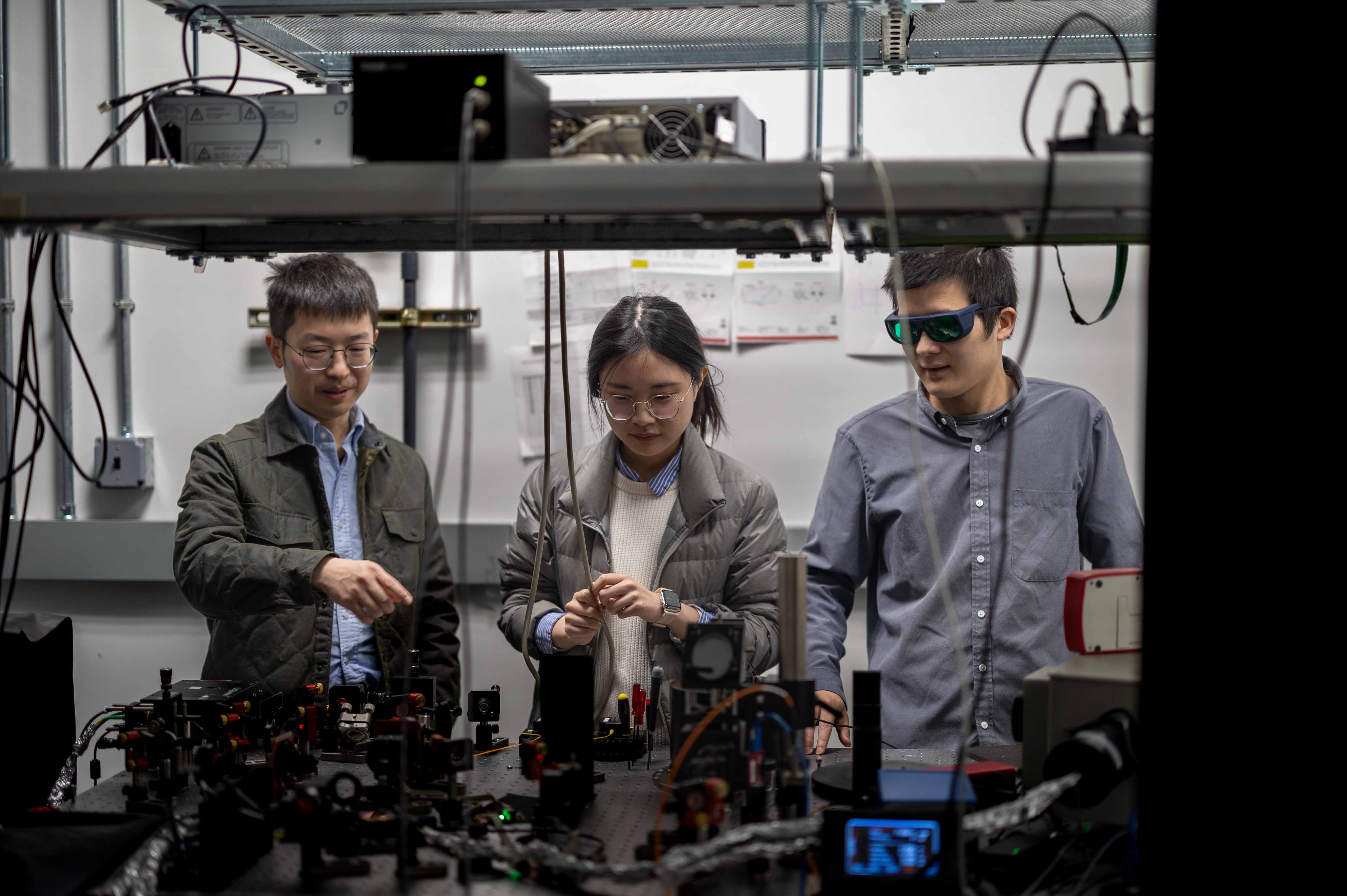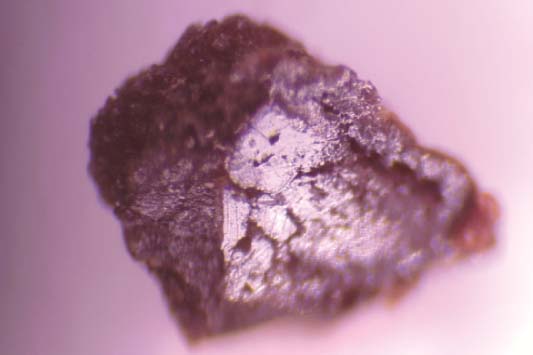News Story
University of Maryland Moves Ahead in Its Leadership of the United States' Semiconductor Industry

Institute for Systems Research Director Ankur Srivastava (third from left); Midwest Microelectronics Consortium (MMEC) CEO Jackie Janning-Lask (center); MMEC Chief Technology Officer Matt Casto (fourth from right); and other MMEC members.
The University of Maryland (UMD) took more steps forward in its leadership of the United States’ semiconductor industry by joining two significant federally-funded partnerships.
Digital Twins
In November 2024, the Biden-Harris Administration announced a $285 million initiative—known as the Semiconductor Manufacturing and Advanced Research with Twins USA (SMART USA)—to develop, test, and deploy semiconductor digital twins, a virtual replica of a real object or system allowing researchers to study them and suggest improvements. UMD will play a critical role in SMART USA through its participation in the Semiconductor Research Corporation (SRC)-led team, sharing faculty expertise and facilities, and contributing to SRC’s workforce development goals.
“Cutting-edge semiconductors have created a digital world that we rely on for almost everything,” says Samuel Graham, Jr., dean of UMD’s A. James Clark School of Engineering, in a recent in-depth story on the school’s semiconductor work. “It is therefore critical that the supply chain providing access to semiconductor technology is robust and secure. The University of Maryland has clear leadership in the areas necessary to secure it, and we are proud to lend our expertise to solving society’s grand challenges and promoting our country’s national security.”
Semiconductor Packaging
In November 2024, the Biden-Harris Administration also announced $100 million for an advanced semiconductor research project based at Arizona State University (ASU). UMD is a key player in the ASU partnership and its only other academic institution. In collaboration with UMD’s Hardware Security Group and Professor Ankur Srivastava, and the Center for Advanced Lifecycle Engineering and Professors Abhijit Dasgupta, Bongtae Han, and Patrick McCluskey, the ASU partnership will help develop next generation microelectronics packaging through fan-out wafer-level packaging. This significant opportunity for UMD researchers will help further establish the Mid-Atlantic region as a major innovator in semiconductors.
“Since the announcement of the CHIPS Act, we have been actively leading, partnering, and strategizing to enhance our country’s national and economic security,” said Ankur Srivastava, the Clark School’s inaugural director of semiconductor initiatives and innovation. “We are excited that innovations in advanced substrates for heterogeneous integration supported by this award will lead to highly complex and efficient packaged electronic systems.”
A Continued Track Record of Semiconductor Success
In October 2024, the Midwest Microelectronics Consortium (MMEC) announced $31 million for five technology development projects through Microelectronics Commons, including research in secure edge technologies that includes expertise from the Clark School of Engineering (Srivastava and his collaborators). As a leader in secure edge microelectronics, 5G/6G communications, and microelectronics to support artificial intelligence, UMD serves on the MMEC steering committee.
In January 2024, UMD and Booz Allen Hamilton announced its collaboration with MMEC. The kickoff meeting with government officials took place on February 7, 2024, in Columbus, Ohio, as part of MMEC’s Microelectronics Commons Roadshow site visit.
Published December 5, 2024
















